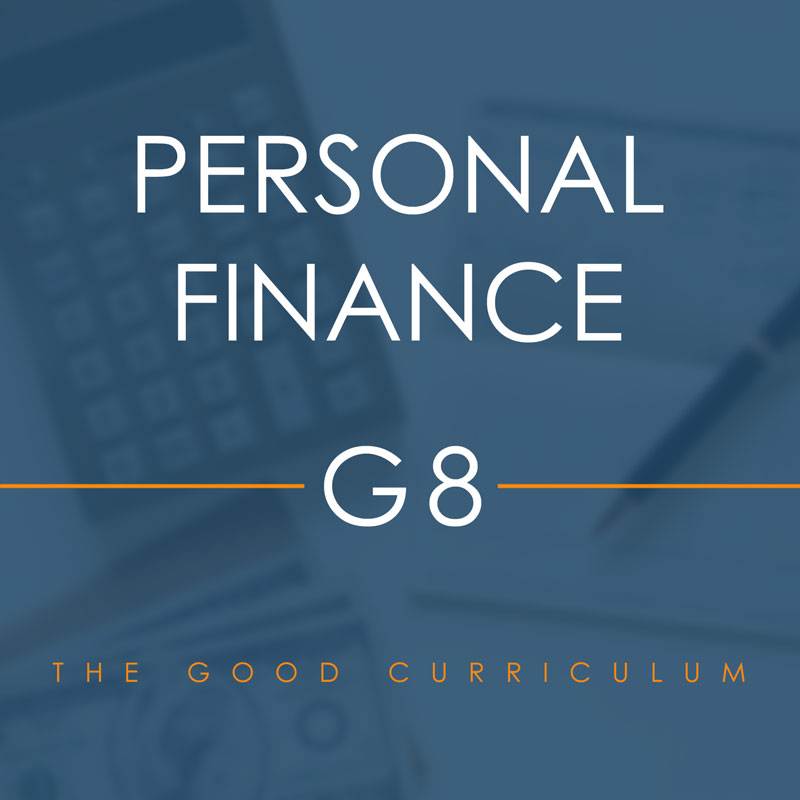Description
Teens face a lot of money problems. Many say they do not manage their own money at all.
According to a 2012 Junior Achievement USA/Allstate Foundation survey, over 1/4 of teens do not expect to be able to support themselves financially until after the age of 25. According to the same survey, only 56 percent of teens think they will be financially as well off, or better off, than their parents. Many students will wind up in hundreds of thousands of dollars of debt in the few years after graduating from high school, with a combination of student loans, credit cards, car loans, and mortgages.
Nationally, few high schools offer courses in personal finance. The statistics are here. This curriculum is different. It offers an economics course and a personal finance course.
Teens do not have confidence in their ability to handle their finances and their time, and this course is directed at changing that. Instead of working without goals, students will learn how to develop goals and achieve them. Instead of habitually over-spending, students will learn the techniques of managing their finances with longer-term goals. Instead of thinking about how to spend resources they did not earn, students will learn how to imaginatively create wealth. Instead of joining the 30% percent of student loan borrowers who are delinquent on their payments (and that’s not counting those in deferment or grace periods), students will learn to avoid debt traps.
I teach this course from the point of view of a parent of teenagers, and I show students how the real world works. In parts of the course, I bring my 15+ years of experience as a teacher of college economics to bear, to show students how broader economic events can affect their personal finances.





Reviews
There are no reviews yet.